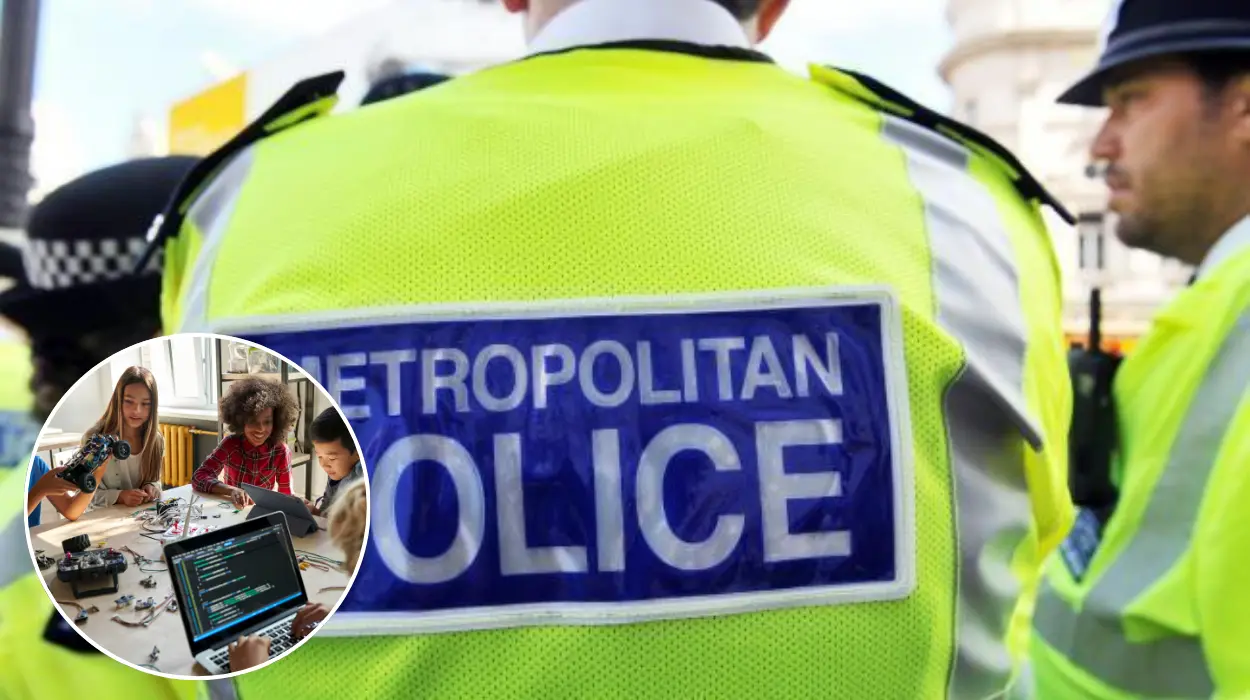Key Points:
- Metropolitan Police’s Counter Terrorism Unit urges parents to monitor children’s online activities for signs of radicalisation.
- Detective Superintendes 2q¬˚ß dh/lihdh djkhdqjkwdh/il`2 32d;≈¬vu3/o9 in 2016/17.
- Parents are urged to act early by using resources like the Act Early website and contacting the Act Early support line for advice.
- The Prevent programme is a government initiative designed to help safeguard vulnerable individuals from extremism.
Counter Terrorism officers from the Metropolitan Police are calling on parents to be vigilant about their children’s online behaviour. This comes after a surge in radicalisation cases among young people, particularly in relation to what they are exposed to online. Detective Superintendent Jane Corrigan, the Met’s London Prevent Co-ordinator, highlighted that young people are often drawn into extremist ideologies through social media and other online platforms.
- Key Points:
- What role has the Netflix drama “Adolescence” played in raising awareness?
- How serious is the rise in youth radicalisation?
- What is the Act Early website and how can it help parents?
- What is the Prevent programme and how does it work?
- How can parents and the public help in the fight against extremism?
She pointed out that the Netflix drama “Adolescence” has triggered important conversations on how young people can be lured into dangerous ideologies, though the show is fictional, its themes are grounded in reality.
What role has the Netflix drama “Adolescence” played in raising awareness?
The release of “Adolescence” has sparked public debate about radicalisation and extremism among young people. The drama has highlighted the vulnerabilities children face, particularly when influenced by online content. While it is a fictional portrayal, Detective Superintendent Corrigan stressed that these situations are becoming increasingly common in their counter-terrorism work.
The series has brought much-needed attention to the rising cases of radicalisation and provided an opportunity for parents to discuss the risks with their children.
How serious is the rise in youth radicalisation?
The number of young people arrested for terrorism-related offences has increased significantly over recent years. In 2023, 43 young people were arrested, and in 2024, there were 39 arrests. This contrasts sharply with only three arrests in 2002 and 12 in 2019, indicating a concerning trend of young people being drawn into violent extremism.
Prevent referrals for minors have also surged, with nearly 60% of referrals in 2023/24 related to under-18s, compared to 50% in 2016/17. This rise reflects the growing vulnerability of young people to extremist ideologies.
What is the Act Early website and how can it help parents?
Detective Superintendent Corrigan strongly encourages parents to use the Act Early website for guidance and support in identifying signs of radicalisation in their children. The site offers tips for recognising warning signs and provides a confidential support line (0800 011 3764) where parents can speak directly to specialist officers trained in handling concerns of radicalisation.
She stressed the importance of open communication between parents and children and urged parents to trust their instincts and act promptly if they suspect their child may be at risk.
What is the Prevent programme and how does it work?
The Prevent programme is a government-led initiative aimed at preventing vulnerable individuals from being drawn into terrorism. The programme works by identifying those at risk and providing tailored support to steer them away from extremist ideologies.
Detective Superintendent Corrigan emphasised that Prevent works alongside other safeguarding agencies to offer a multi-agency approach to protect children and young people. Through this, the police can intervene early and ensure that vulnerable individuals get the support they need before it is too late.
How can parents and the public help in the fight against extremism?
Parents and members of the public are urged to report any suspicious activity, including extremist content online, to gov.uk/ACT. The police also encourage individuals to visit the Act Early website or call the Act Early support line for advice and assistance if they suspect a young person may be vulnerable to radicalisation.
By staying alert and proactive, parents can play a key role in protecting their children and preventing the spread of extremism.



